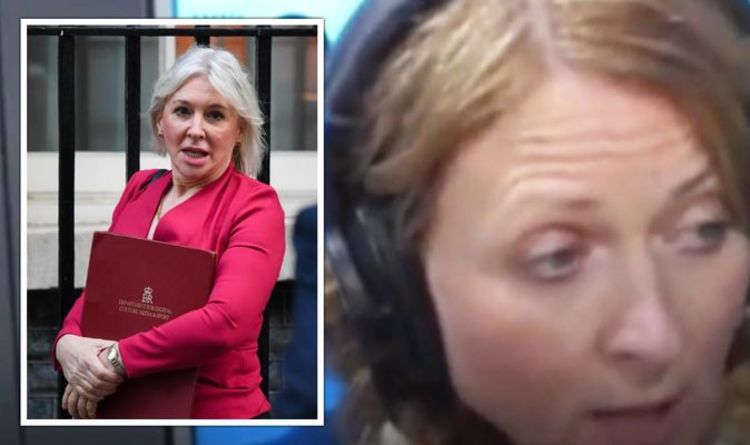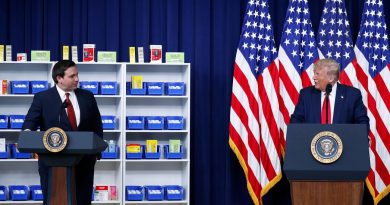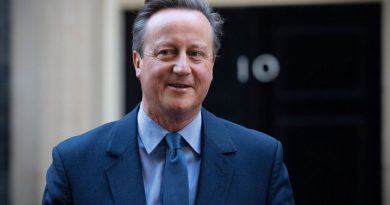‘Keeps us together!’ Danish journalist shares BBC licence warning after country scraps fee
Danish broadcaster 'had to cut 400 jobs' says Johansen
We use your sign-up to provide content in ways you’ve consented to and to improve our understanding of you. This may include adverts from us and 3rd parties based on our understanding. You can unsubscribe at any time. More info
Tine Johansen appeared on BBC Radio 5 Live to describe the situation in Denmark after politicians voted to remove the “old-fashioned” TV licence financial structure of the Danish Broadcasting Corporation (DR). Ms Johansen explained two TV stations, two radio stations and around 400 jobs were lost due to the decision which Danish media says took around 20 percent of the broadcaster’s total funding away. When asked by presenter Rachel Burden about how the move was received by the public, Ms Johansen said many realised how important a public broadcaster was as they needed a strong, fact-based outlet that could “bring us together as a nation”.
Speaking on BBC Radio 5 Live, Ms Burden discussed the issue with Ms Johansen and wanted to know what changes DR had to make.
The Dane said: “Well, the agreement… was that we needed a more focused DR, the same wording is used in Britain.
“Focus DR meant they had to close down two TV stations and two radio stations and lay off around 400 jobs in DR.”
Ms Burden wanted to know whether the public supported the move in Denmark.


Ms Johansen explained: “Not really because during the Covid crisis it’s been obvious to everybody how important it is that we have strong public service.
“And to have a common-ground, [fact-checked], news and all that.
“Like ethical news for children and all the things that keep us together as a nation.
“So I’m not really sure that there would be a majority in the country to cut it down, no.”
BBC: Tim Davie says ‘people are clearly worried’

According to Danish newspaper, Berlingske, reports DR suffered from budget issues which forced politicians to debate whether the licence fee should remain and become a burden on the public.
MPs voted to replace the fee with general taxation with the Danish People’s Party chairman, Peter Skaarup, stating he hoped the move would make the broadcaster more “efficient”.
Mr Skaarup also branded the licence fee model “old-fashioned”.
They report the licence abolition would result in a saving of DKK 2,343 (£263) a year per family.
DR, similarly to the BBC, came under fire for impartiality breaches from the right-wing Danish People’s Party but an investigation found no such partisanship existed within the broadcaster.
DON’T MISS
‘Why should I pay for the BBC!’ Richard Madeley clashes with Susanna [VIDEO]
GB News presenter demands BBC licence fee to be scrapped [INSIGHT]
Vulnerable need help as cost of living hits home – EXPRESS COMMENT [COMMENT]

Culture Secretary Nadine Dorries announced this week there would be a freeze on the BBC licence fee which has revived debates on the validity of the cost.
Ms Dorries also told MPs in the House of Commons that the fee will remain fixed until April 2024 then rise in line with inflation for the following four years.
This will continue until the end of the current Royal Charter on December 31, 2027.
On Sunday morning, she tweeted: “This licence fee announcement will be the last.”
Source: Read Full Article



